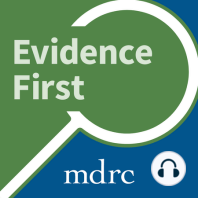11 min listen
Rural Higher Education: Challenges and Opportunities — Part IV
FromEvidence First
ratings:
Length:
46 minutes
Released:
Dec 21, 2020
Format:
Podcast episode
Description
A special series from the Rural Matters podcast This episode is the last of a special four-part series about issues facing rural higher education from our colleagues at the Rural Matters podcast. It is coproduced by MDRC and supported by Ascendium Education Group. As the United States confronts the recession caused by the pandemic, the economic stability of rural areas looms large. Many rural counties never economically rebounded from the 2008 recession, even as urban and suburban communities recovered. The U.S. Department of Agriculture’s 2019 Rural America at a Glance Report identifies three reasons for the divergence in employment rates and salaries between urban and rural areas: an older population, a higher proportion of the population with disabilities, and lower educational attainment. In this episode, Rural Matters host Michelle Rathman chats with three experts about innovative programs to promote sustainable growth for rural communities and economic mobility for students: Matt Dunne, founder and executive director, the Center on Rural Innovation David Tandberg, senior vice president for policy research and strategic initiatives, the State Higher Education Executive Officers Association (SHEEO) Leslie Daugherty, an education designer at the Education Design Lab
Released:
Dec 21, 2020
Format:
Podcast episode
Titles in the series (57)
CareerWise Colorado: A Modern Youth Apprenticeship Model: Career and technical education programs have taken on many different forms, but one that has been gaining in popularity is apprenticeships. Join Katie Beal as she talks to Noel Ginsberg, CEO of CareerWise Colorado, and Gretchen Morgan, former... by Evidence First
